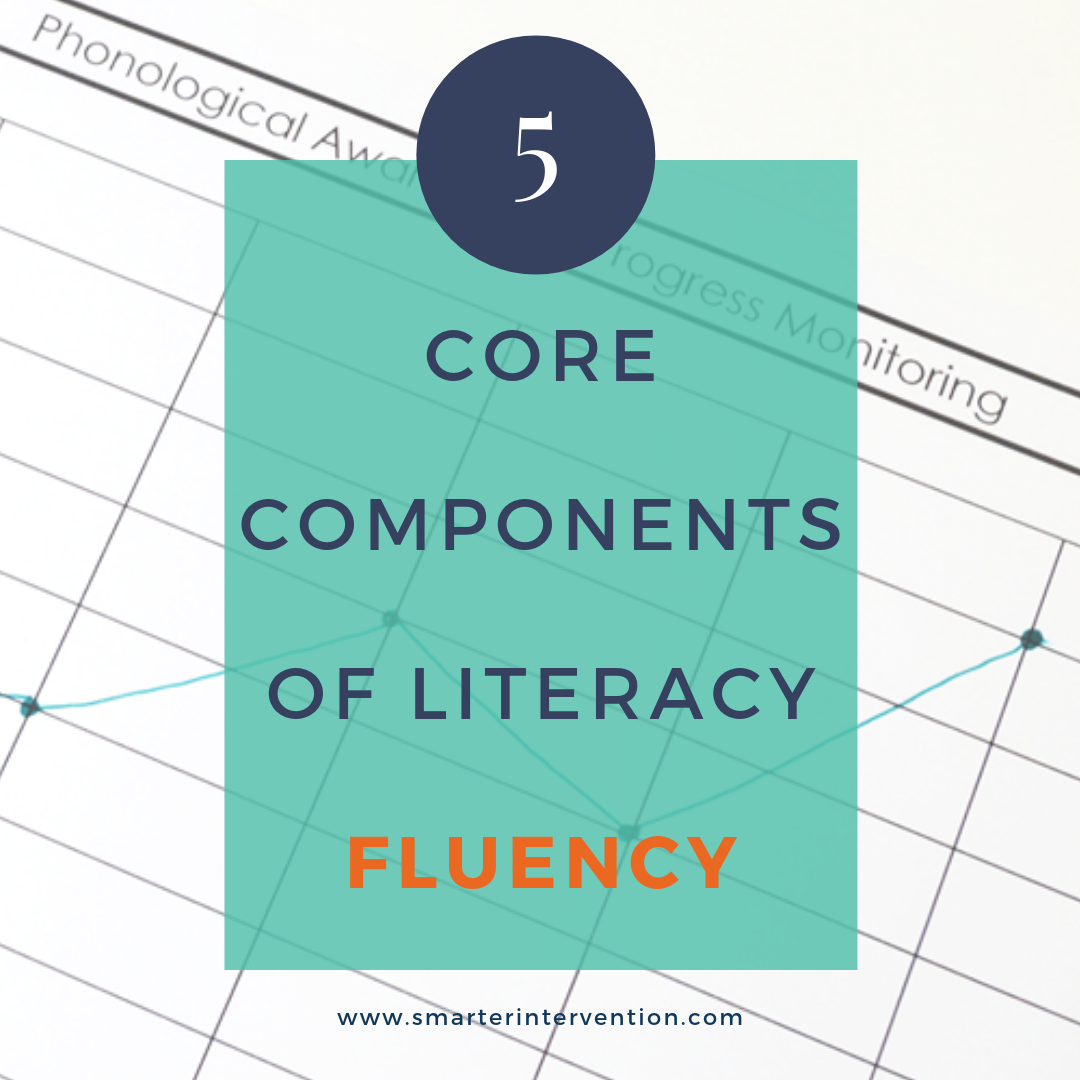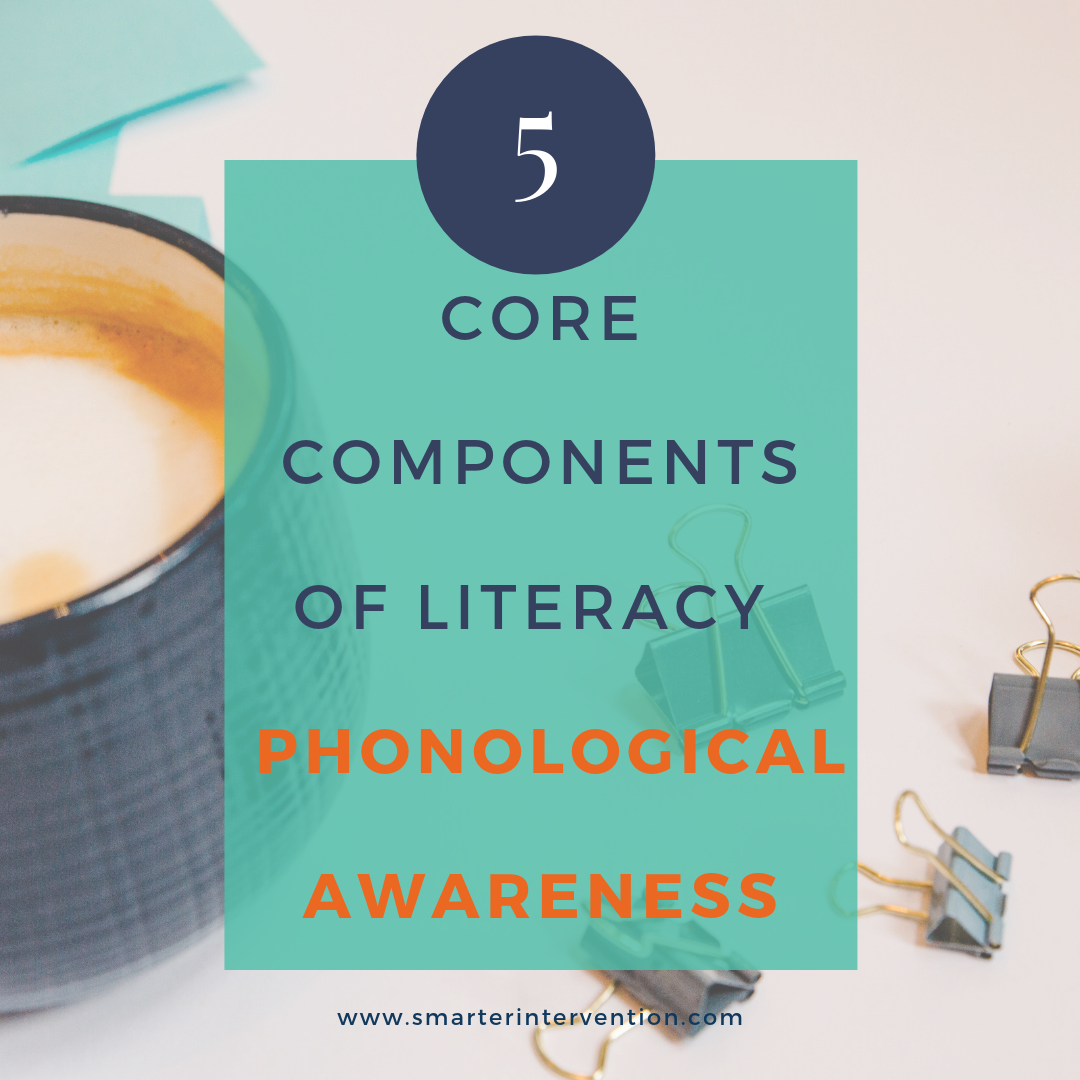Science-based literacy resources and articles
for families, educators and schools
Search by Category:
Categories
- Advocacy
- Authentic Literature
- Business
- Comprehension
- Data Tracking
- Differentiation
- Dyslexia
- Evaluation and Assessment
- Executive Functioning
- Games & Activities
- Helping My Child At Home
- How To
- IEP/504 Plan
- Lesson Planning
- Math
- Online Intervention
- Organization
- Parents
- Phonics
- Phonological Awareness
- Reading Comprehension
- Reading Fluency
- Research
- SLP
- Spelling
- Vocabulary
- Writing
4 Common Myths about Dyslexia
In honor of dyslexia awareness month, we wanted to take this opportunity to dispel some common myths about dyslexia and to provide further information to go check out if you’re worried your child or one of your students may have dyslexia.
Let’s dive right in…
5 Core Components of Reading - Comprehension
We are wrapping up the 5 Core Components of Literacy this week with the final component, arguably the most important component, comprehension!
The end goal of reading is obviously…
Reading Comprehension
So how do we make sure that students are able to effectively comprehend what they read?
5 Core Components of Reading - Fluency
Reading fluency is really important however, we need to be careful not to over-emphasize its importance as one of the core components of literacy. I say this because Reading Fluency is one of the most common goals you will see created for struggling students.
5 Core Components of Reading - Vocabulary
This month we’ve been talking all about the 5 Core Components of Literacy. Today, we wanted to jump into an extremely important and yet often overlooked part of literacy instruction.
5 Core Components of Reading - Phonics
Many educators in the field have a love hate relationship with phonics. In the sense that some educators love a phonics approach one week and hate it the next (it can be extremely difficult to organize it all for Pete’s sake). And…some educators LOVE a phonics-based approach and others hate it in favor of a more whole-language approach.
5 Core Components of Reading - Phonological Awareness
Phonological Awareness is the understanding of the sound structure of our English language. This is a critical component of literacy development and must be included in effective reading instruction programs!
We cannot begin to “sound words out” if we don’t understand that letters represent sounds that string together to read words or pull apart to spell words.
How to Stop Letter Reversals
We all know that this can be such a sticking point for our dyslexic kiddos. It's important to note that many students display difficulty with b/d until the end of second grade or about the age of 8. By the time a child is 8 years old the dreaded b/d reversal should be pretty much gone.
Why You Should Use Games in Your Reading Instruction
We’ve learned that by turning simple reading tasks into games it will provide students with the repetition they need to see success. We try to turn EVERYTHING into games and you’d be surprised because even those of you with older students will see that they enjoy this “gamification” of instruction as well.
Teaching Blends & Digraphs
Mastering English reading and spelling involves understanding blends and digraphs. Explore our comprehensive guide to teaching these crucial patterns effectively. From phonological awareness to real-world application, we provide strategies and resources for seamless learning.
How to Support Early Reading Skill Development
Teaching early reading skills relies on working from the most basic skills and activities that students need to learn to be successful in the classroom and building a slow and steady progression of sounds. We recognize that teaching letter sounds and beginning blending is truly only one aspect to learning to read but it’s absolutely critical.
Why We Love Interactive Notebooks in Our Reading Intervention
One of our favorite things to do with our students is to create interactive notebooks. We absolutely love it because it is a really great way to start off your systematic, structured, reading intervention. It's also a great way to keep students engaged!
How do I Improve Phonological Awareness?
Phonological awareness is a key foundation for building early reading skills.
It's an umbrella term that essentially refers to the ability to break words into individual sounds, blend sounds to create words (sounding it out), and the ability to manipulate sounds in our language through tasks like rhyming, changing the ending sounds of words or the order of words (like in Pig Latin).
How to Teach Syllable Types & Syllable Division
One of the most effective ways to teach reading and spelling skills is to teach students about the Six Syllable Types and how to divide words into syllables using syllable division strategies. When we teach reading, we teach our students that sounds (consonant sounds and vowel sounds) come together to create syllables, syllables come together to create words, words come together to create phrases and sentences, and sentences come together to create paragraphs, which come together to create stories or information text.
The Biggest Struggle I Faced as an Educator
I was reflecting on why this field can be so difficult at times. I was considering the beliefs we have, the realities we face. This field is beyond rewarding and the impact we make as therapists as educators is truly second to none. But it’s hard.
And part of the reason it’s so hard is because we expect a lot from ourselves. And then we never seem to measure up no matter how many hours we put in. It often feels like there is no winning. When I started out in this field I thought I had two choices. I could only be one of two types of educators.
3 Common Myths About Reading Intervention
Today we wanted to have a little real talk with all of you. We wanted to address three common myths we keep hearing about research-based reading intervention.
When Orton-Gillingham Wasn't Enough
When I started out in this field, shifting from working purely as an Assessment Specialist (psychometrist if we want to get fancy) working alongside psychologists I was enamored with this approach that I heard so much about. I took the fancy Orton-GIllingham trainings, I made OG based activities & games, created OG based lessons, followed an OG Scope and Sequence…but it wasn’t enough. Here’s what I did next.
7 Must Haves for Research Based Reading Intervention
Whether you are a teacher, a parent, an SLP, or an interventionist, if you’re anything like us…which you are, because you’re here, you care about providing top notch intervention or instruction for your students. However, with all the differing opinions out there in the field of education it can be difficult to know if what you’re doing is the right thing. Click through to read about our 7 Must Haves for effective, research-based reading intervention.
How to Teach the au/aw Spelling Rule
Now, if you have been working with us for a while, you’ll know that we LOVE teaching with key images and phrases to help anchor skills for a student. For au/aw, we use the phrase “Yawn, I have to do the laundry.” This helps our struggling readers and spellers remember the rule. Keep reading for more tips, tricks and activities surrounding the au/aw vowel team.



















